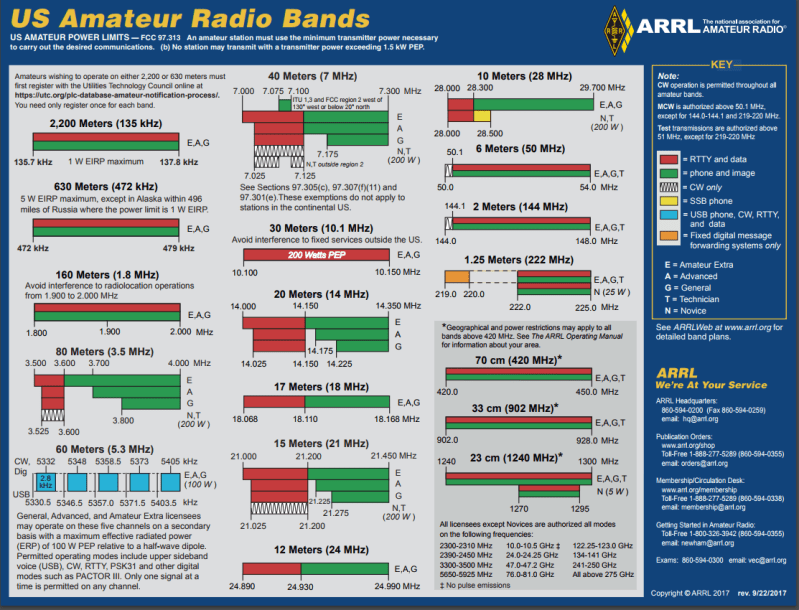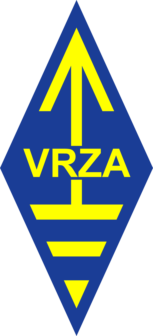
Today we start a new series dedicated to amateur radio for cheapskates. Ham radio has a reputation as a “rich old guy” hobby, a reputation that it probably deserves to some degree. Pick up a glossy catalog from DX Engineering or cruise their website, and you’ll see that getting into the latest and greatest gear is not an exercise for the financially challenged. And thus the image persists of the recent retiree, long past the expense and time required to raise a family and suddenly with time on his hands, gleefully adding just one more piece of expensive gear to an already well-appointed ham shack to “chew the rag” with his “OMs”.

As I pointed out a few years back in “My Beef With Ham Radio”, I’m an inactive ham. My main reason for not practicing is that I’m not a fan of talking to strangers, but there’s a financial component to my reticence as well – it’s hard to spend a lot of money on gear when you don’t have a lot to talk about. I suspect that there are a lot of would-be hams out there who are turned off from the hobby by its perceived expense, and perhaps a few like me who are on the mic-shy side.
This series is aimed at dispelling the myth that one needs buckets of money to be a ham, and that jawboning is the only thing one does on the air. Each installment will feature a project that will move you further along your ham journey that can be completed for no more than $50 or so. Wherever possible, I’ll be building the project or testing the activity myself so I can pursue my own goal of actually using my license for a change.
(A shout-out to Robert for suggesting this series, and for graciously allowing me to run with his idea.)
Getting Your Ticket
The licensing of amateur radio stations in the United States goes all the way back to 1912. (I’m concentrating on US laws and customs regarding the amateur radio service simply because that’s where I live; please feel free to chip in on the comments section about differences in other countries.) Anyone who wants to operate on the bands reserved for the amateur radio service has to be licensed by the Federal Communication Commission. Unlicensed individuals are free – and encouraged – to listen in on the bands, but if you don’t have a license, you can’t transmit. And trust me, the local hams, with know-how, equipment, and all the time in the world, will find you, resulting in an unpleasant encounter with the FCC.
There’s really no reason not to get a license anyway. This will be among the cheapest parts of a ham’s journey, and perhaps even free. To earn a license you’ll need to pass a written exam, but before taking the plunge you’ll need to know a little about the classes of amateur radio licenses, and the privileges they bestow.
The current entry-level license class in the US is called Technician class; the old Novice class was eliminated in 2000, along with the Morse code requirement for all classes. Technicians have privileges to operate mainly on the upper frequencies, primarily on the 2-meter (144 MHz) and 70-cm (420 MHz) bands in phone mode, which means voice transmissions. Technicians also have access to small slices of the 10-meter band using data modes, and small sections of 15-, 40-, and 80-meters if they learn Morse or use a computer to send and receive it. This limits the Technician to mainly local communications, but there’s plenty to do and loads to learn on these bands.

Practice, Practice, Practice
Even with all the limitations, a Technician license still offers access to a lot of spectrum and serves as the gateway to the next two classes, General and Extra. Everyone has to start with a Technician license, which requires passing a 35-question multiple choice examination. The exam is standardized with questions selected from a fixed pool, with topics ranging from knowing FCC Part 97 rules to basic electronics and RF theory. The exam is pretty easy, especially for anyone with a background in electronics. In fact, many complete newbies come to exam sessions after having run through enough online practice tests to see every possible pool question and pass the exam without understanding a thing about radios or electronics. There are lively debates over whether that’s a good thing or not – personally, I’m not a fan of it – but it is what it is; the Technician exam is dead easy.
Your investment in a Technician license will be minimal, and mostly consists of the time it takes to study. Online practice tests – I recommend the tests on QRZ.com – are free to take as many times as you need to. Some ham clubs offer local classes aimed at helping you to prepare, and those generally charge only a nominal fee. There are even one-day intensive “ham cram” sessions where you’re guided through all the material and take the exam at the end of the day.

Exam sessions are run by Volunteer Exam Coordinators (VECs)
Volunteer Examiners (VEs), hams who have special training in
administering and grading exams. They too charge only a nominal fee – I
think I paid $15 – and may even waive the fee under certain
circumstances. There are also occasional special events like the annual Field Day, where hams set up tents and booths in public places as an outreach to the public, where exams are often administered for free.
Honestly, getting your Technician license is about as low impact as the amateur radio hobby gets. Once you can consistently pass practice tests online, the actual exam is a breeze. Exams are graded on the spot so you’ll know instantly how you did, and you can even take the next exam for no extra charge if you’re ready. Give it a shot even if you haven’t studied – I nearly passed my Extra exam going in cold after I aced my General.
Next Time
In the next installment I’ll start discussing what the newly minted Technician can do with his or her license. It may seem like a pipe dream to get on the air for less than $50, but it’s surprising what’s available these days, and you’ll find that fifty dollars can go a long way toward making your first contact.
